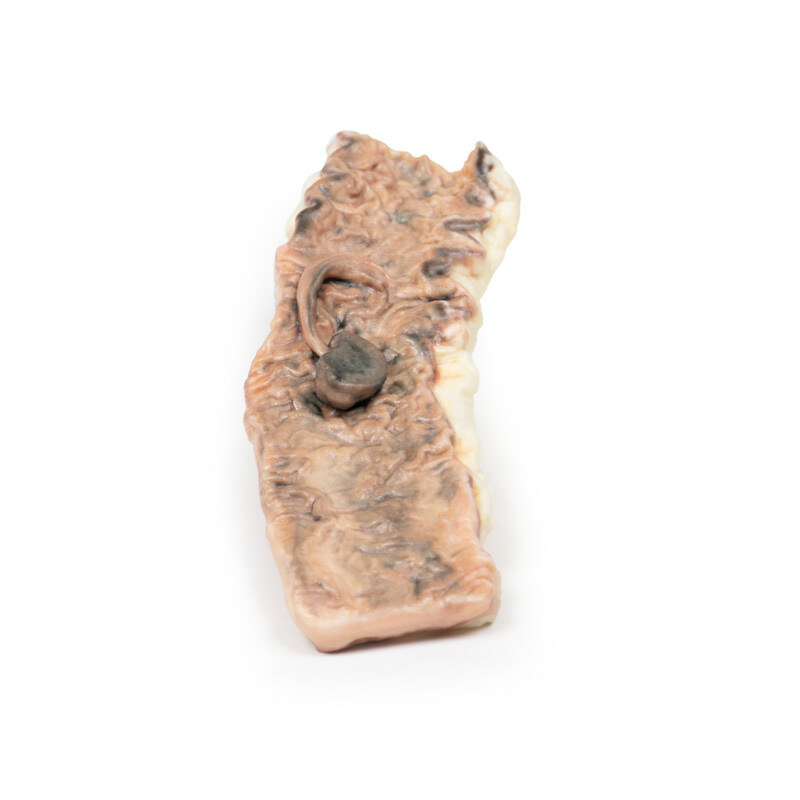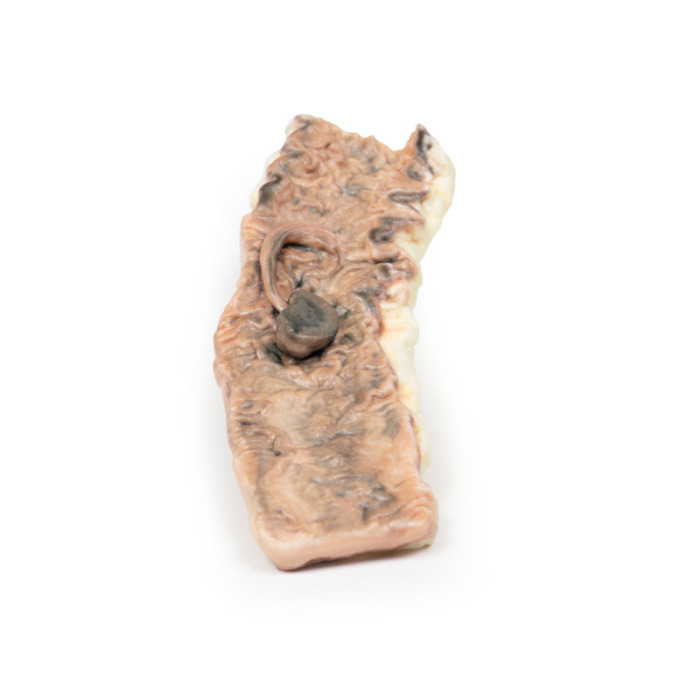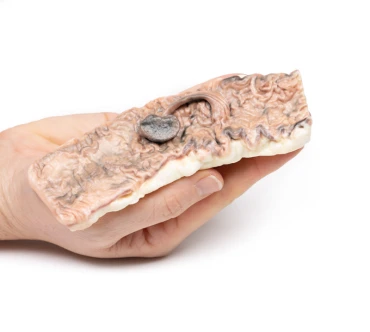MP2081 - Pedunculated Adenoma of the Colon
By buying you get
76 Points
More than a purchase. You get service and expert advice. Ask which products and combinations are recommended for you.
Clinical History
A 50-year old male underwent a colonoscopy after testing positive for faecal occult blood during a screening test. Colonoscopy revealed a pedunculated tumour in the descending colon, which was later resected.
Pathology
This specimen is the resected segment of descending colon. There is a single dark lobulated mass visible arising from the mucosal surface. It is attached to a stalk which is 4cm in length. Histologically, the mass comprises a core of connective tissue covered with hyperplastic glandular epithelium of colonic type, with focal nuclear atypia. This is an example of a tubular colonic adenoma.
Further Information
Colorectal adenomas are intraepithelial neoplasms that characteristically display epithelial dysplasia. They are benign but are precursors to adenocarcinoma. Not all adenomas evolve into adenocarcinoma. They produce polyps (sometimes pedunculated) or sessile lesions or variable size. They occur predominantly in males and are more common in Western countries due to diet and lifestyle. They are present in about 30% of people over the age of 60 years in the West. There is an increased risk in patients with a positive family history of colorectal adenocarcinoma. Regular surveillance colonoscopy in at risk groups with polyp removal reduces incidence of adenocarcinoma. There are three classifications of colonic adenomas based on their architecture: tubular (>75% have a tubular morphology), tubulovillous (25-75% villous morphology) and villous (>75% have villous morphology). Histologically, they may have epithelial dysplasia characterized by nuclear hyperchromasia, elongation and stratification. Tubular adenomas tend to be small, pedunculated polys composed of rounded or tubular glands. Pedunculated adenomas have a slender fibromuscular stalk with blood vessels derived from the submucosa. The stalk is usually non-neoplastic epithelium. The size of the adenoma is the biggest predictor of progression to adenocarcinoma. Progression is rare in adenomas
- Quantitative unit
- ks

MP2081 - Pedunculated Adenoma of the Colon








